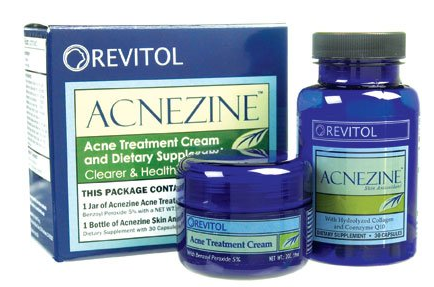Can Acne Treatment Cause Acne
There are many kinds of acne and a lot of different treatment plans. Technically called acne vulgaris, this skin ailment affects countless Americans annually. Nearly 85% of folks develop acne eventually between the ages of 12-25 years.
Almost everyone is affected with outbreaks of pimples during life, making acne essentially the most common skin complaints. Understanding the details of acne would be the first step towards getting a successful the best acne treatment and managing your acne.
Many teenagers outgrow their how to treat acne, but it's common for a few women to require treatment to their late thirties.
What Causes Acne?
No one knows beyond doubt exactly what causes acne, or why it usually begins in adolescence. Since the medical exposure to acne is still relatively small, many misconceptions and rumors as to what causes acne exists. No one factor causes acne.
Acne lesions develop inside oil-producing structures on the epidermis called pilosebaceous follicles. Oil secretions increase beneath the blocked pore, providing the perfect environment for that skin bacteria Propionibacterium acnes to multiply uncontrolled. For unknown reasons skin cells of acne patients stick together from the pore (this could be made worse by grease, pomades, makeup, etc.). 
Deeper still acne causes cysts what are worst kind of acne and carry the potential of permanent scarring. Genetics also play a role inside development of acne and therefore there is often a tendency for the skin disorder to run in families.
There are other skin problems that may resemble acne, however are unrelated.
Acne and Bacteria
Pimples in many cases are caused by Propionebacterium acnes, a standard bacterium on the epidermis that feeds on sebum. The bacteria result in the surrounding tissues being inflamed and pimples are formed. The acne bacteria feeds off this mixture which results in inflamed conditions.
Acne-causing bacteria are anaerobic, meaning they are unable to survive within an oxygenated environment. Bacteria called Corynebacterium acnes, which cause skin fats to break down into irritating chemicals, may directly bring about an outbreak.
Acne in Teenagers
Due towards the hormonal changes they experience, teenagers will develop acne. Most teens who develop acne cure acne develop the milder form, called non- inflammatory acne. Hormonal disorders can complicate acne in girls.
If undoubtedly are a teenager and you've got acne, you do have a lot of company. About eighty percent of all teenagers develop acne, even so the disease can also start as late as age 25 or 30, specially in women.
Acne in Adults
Just if you thought your "bad skin" days were over, adult acne strikes. Just after you've successfully navigated the ravages of adolescence onto the skin, you wake and find acne.
There are various factors behind adult acne. The new trend in medical circles should be to discuss acne like a hormonal imbalance. Hormonal changes relevant to pregnancy or menstrual periods could cause or help with acne. Also, hormonal changes associated with starting or stopping birth control pills may cause acne. Excess emotional stress on the body can give rise to hormonal changes which are known to cause acne too.
Adult pimples are different from teenage acne and as a consequence your treatment approach ought to be different.
Severe Acne
Boys have an overabundance of severe acne and develop it more girls. Severe acne could cause scars that will never disappear. All even so the most severe grades of acne are controllable while not curable. The most severe form of acne contains cysts (closed sacs) and nodules (hard swellings).
Vigorous treatments for more severe kinds of acne might help prevent facial scarring.
Treatment of Acne
There is really a myriad of products sold to the treatment of acne, a lot of them without any scientifically proven effects.
The primary products familiar with treat acne really are a pharmaceutical grade glycolic acid solution plus a topical antibiotic. By applying a chemical solution on the skin, known being a chemical peel, mild scarring and certain forms of acne might be treated.
Non-prescription medications are offered over the counter to take care of mild types of acne.